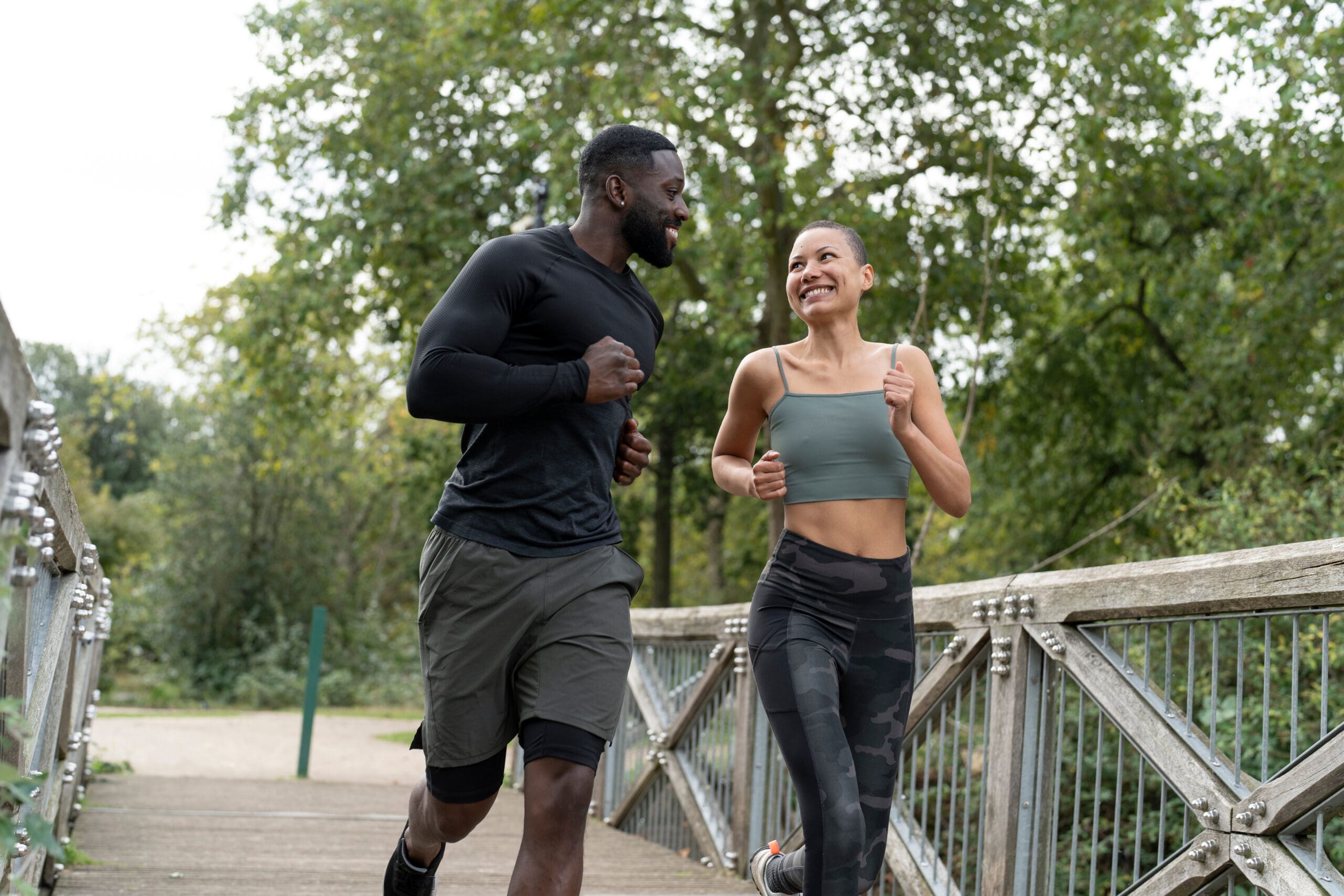If you’ve been battling anxiety, depression, or other mental health challenges, you know how this fight can take a toll on your overall well-being. While traditional treatments like therapy and medication are essential, there’s an often-overlooked tool that can assist in your journey toward better mental health: exercising outdoors.
By combining physical activity with the restorative qualities of Mother Nature, you’re nourishing your body, mind, and spirit. If you’re having a rough day, now is the perfect time to step outside, breathe in the fresh air, and take advantage of what mental health experts like to refer to as “green exercise.”
Head Outside for Your Workout
Physical activity is beneficial in any form, but researchers have found that the effects are multiplied when you’re exercising in the great outdoors. In a study published in Extreme Physiology & Medicine, Valerie F Gladwell, Daniel K Brown, Carly Wood, Gavin R Sandercock, and Jo L Barton write, “Recent reviews indicate that exercising outdoors appears to be more beneficial to mental health over indoor activities and furthermore, natural environments have a greater impact on psychological health especially when exercise is incorporated.”
Some of the many benefits of green exercise include:
- Exposure to natural environments. Being in nature has been shown to reduce stress, anxiety, and negative thoughts. When you’re having a rough day, the greenery, fresh air, and natural sounds can have a calming effect on your mind. Yoga, tai chi, or stretching exercises done outdoors can also have a grounding effect during times of high anxiety.
- Vitamin D from sunlight. Sunlight helps your body produce vitamin D, which is essential for regulating mood and preventing conditions like depression and seasonal affective disorder (SAD). You can get vitamin D from supplements, but having your body produce it naturally is the most beneficial.
- Increased endorphin production. Physical activity stimulates the release of endorphins, which are the natural mood-boosting chemicals in your brain.
- Improved self-esteem. Exercising outdoors can give you a sense of accomplishment and improve your self-confidence, especially when you’ve got a step-by-step plan to reach specific fitness goals, such as training for your first 5K.
- Social interaction. Many people exercise outdoors with friends, family, or in group settings. This can provide you with a source of social support and a sense of community, both of which can benefit your overall sense of mental well-being.
- Reduced rumination. The combination of physical activity and being in a different environment can help distract your mind from negative thought patterns and repetitive thinking. This rumination is a common symptom of both depression and anxiety.
- Improved sleep. Regular outdoor exercise during daylight hours can help regulate your body’s circadian rhythms and improve sleep quality, which is crucial for mental health.
Getting Started with Your Green Exercise Routine
If you’re currently leading a very sedentary lifestyle, the thought of exercising regularly might seem a bit overwhelming. Here are a few tips to help you start your green exercise routine:
- Start small. Begin with short, manageable outdoor activities like taking a 15-minute walk around your neighborhood or a nearby park. Gradually increase the duration and intensity of your workouts as you build endurance.
- Find an outdoor activity you enjoy. Anything that gets your body moving is beneficial, so don’t be afraid to explore different options like hiking, cycling, running, swimming, or playing outdoor sports like tennis or basketball. When you enjoy exercising, you’re more likely to stick with it.
- Bring a friend. Having a workout buddy can make outdoor exercise more fun, help you stay motivated, and add a social component to the activity.
- Invest in proper gear. Treat yourself to comfortable and appropriate clothing, shoes, and any necessary equipment for your chosen outdoor activity. This can help prevent injuries and make the overall experience more enjoyable.
- Plan for different weather conditions. Stocking up on things like sunscreen, a hat, water, and layers of clothing to adjust to changing temperatures or unexpected rain can ensure you’re able to stick to your exercise routine regardless of the conditions outside.
- Be an early bird. If possible, schedule your outdoor workout in the morning to avoid potential scheduling conflicts later in the day. This can also help you take advantage of cooler temperatures.
- Track your progress. Use an Apple Watch, Fitbit, or fitness tracker app to monitor your outdoor activities, set goals, and celebrate milestones.
- Be patient and consistent. Building an outdoor exercise habit takes time and persistence. Celebrate small wins, and don’t get discouraged if you miss a day or have a setback.
Get the Support You Need to Begin Your Wellness Journey
At Raleigh Oaks Behavioral Health, we provide a full continuum of care for men and women dealing with mental health challenges, including assessment, diagnosis, rapid stabilization, and ongoing support. To learn more about the services offered at our Garner, North Carolina facility and how our experienced mental health professionals can provide the support you need to start feeling more like your old self, contact us today to schedule a free, confidential assessment.





